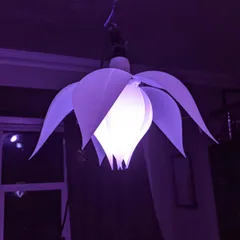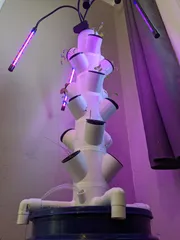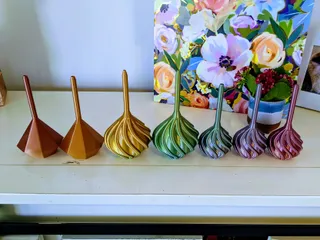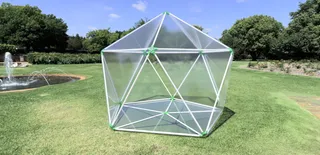Modular Herb Dryer\Dehydrator
Description
PDFDescription
This is a modular herb dryer/dehydrator with stackable shelves and sliding trays. This dryer uses passive airflow to dry out herbs gradually and doesn't require a heat source or electricity.
Instructions
Printing
This is a multipart print, From bottom to top it's made of a base, any number of shelves with sliding trays, and a lid. For a single herb dryer unit, we recommend printing the following.
| Part | Qty | Layer Height | Infill | Supports |
| Base | 1 | 0.2 mm | 15% | None |
| Shelf | 2-20 | 0.2 mm | 15% | None |
| Tray with Star Infill Mesh* | 2-20 | 0.2 mm | 30% - Star | Non |
| Lid | 1 | 0.2 | 15% | None |
*The Tray with Star Infill Mesh .3mf takes advantage of the inherently mesh-like structure of star-pattern infill to print shelves more quickly. Rectilinear, honeycomb, grid, and triangle infill patterns are also good choices.
If you cannot produce this effect with your slicer we have included an alternative tray HerbDryer_Tray_HexGrid.stl that includes a hex grid mesh. This tray can be seen in the rendered images of the herb dryer.
Material: We used PLA for the herb dryer shown in our pictures but we recommend using PETG if the print is expected to be used outdoors where it may be exposed to sunlight.
Assembly
Starting with the base part, stack the shelves you printed on top of each other, then finish the stack with the lid part. Then slide the trays into the open face on each shelf and your done!
(Optional) If you don't anticipate adding more shelves/trays in the future, it is good practice to add a small drop of glue to the joints that connect the shelves together and connect the shelves to the base and the lid. This will produce a more sturdy herb dryer.
Usage
Usage of the herb dryer is pretty straightforward, merely harvest fresh herbs and place them in one of the trays of the dryer. Going from fresh to dry herbs takes about 1 week indoors. Drying can be accelerated by placing the dryer in a warm place or in a place where air naturally circulates.
Tags
Model origin
The author hasn't provided the model origin yet.




